Community Media Access Collaborative (CMAC) is a nationally recognized 501(c)(3) non-profit organization created to help citizens, schools, non-profits, public agencies, and others better connect with our community through the use of media.
CMAC’s mission is to empower community voices by promoting media literacy, civic engagement, cultural understanding, and creative expression.
Our Community Media Center is located on the 2nd and 3rd floors of the historic Fresno Bee building in downtown Fresno and opened in 2012. The media center offers a full range of production tools and training at low or no cost to community users. The facility includes classrooms, meeting rooms, editing suites, a computer lab, TV studio, and podcast studio. CMAC also operates three television channels on Comcast Xfinity and AT&T U-verse, and streams 24/7 on Roku, Apple TV, Amazon Fire TV, and cmac.tv.
Open Positions: Teaching Artist
What is a Teaching Artist?
Teaching artists, also known as artist educators or community artists, are professional artists who supplement their incomes by teaching and sharing their art form, perspectives, and skills with community members.
The Position:
CMAC is seeking experienced instructors to teach different aspects of media production. Instructors can be disciplined in various areas. Instructors will report to CMAC’s Community Media Manager Johnny Pecina. All equipment required to teach the workshops are provided by CMAC.
Responsibilities:
- Prepare class materials, create and follow detailed lesson plans, and provide instruction to workshop attendees.
- Create a calm, focused, positive, and supportive learning environment for all workshop attendees.
- Meet regularly with the Community Media Manager to share successes, challenges, review curriculum, submit feedback regarding workshop outcomes, and make recommendations for improvements to the program.
Qualifications:
- Passion for community building and creative expression.
- Experience working with a diverse public with varying levels of technical skills.
- Must be highly organized and detail oriented.
- Flexible schedule (mornings, evenings, or weekends).
- Bilingual is a plus (Spanish, Hmong, Punjabi).
- Prior teaching experience and curriculum development is a plus.
- Experience working with youth, seniors, or people with disabilities is a plus.
Topic Areas:
Applicants are not required to have expertise in all areas, but those with a background in multiple disciplines may be prioritized.
- Narrative film production
- Documentary film production
- Podcast production
- Social media content creation
- Studio production
- Video/audio editing and post-production (specify which software packages)
- 3D design, motion design, or graphic design (specify which software packages)
- 360 video, virtual reality or augmented reality design
- News reporting and journalism
Compensation & Schedule:
Teaching Artists are paid $30 per hour for class meetings and preparation time. Workshops may be offered on weekdays and Saturdays in the morning, afternoon, or evening. Workshops can be short form or long form. Your schedule could be as little as 5 hours per month, or as much as 10 hours per week. We will work with instructors individually on lesson plans, class counts, scheduling and availability.
How To Apply:
Please send an email to jobs@cmac.tv with the subject line: Teaching Artist. Include the following:
- Your resume.
- A cover letter that specifies the topic areas in which you have expertise and how your knowledge and skills makes you qualified to teach this subject.
- A link to your reel or samples of your work (provide a link, do not attach large files to the email).
We will only consider complete applications. Due to the volume of applications, we may not be able to respond individually to each applicant. No phone calls please. We will contact candidates for interviews on a rolling basis.
CMAC is an equal opportunity employer and considers all applications without regard to race, color, religion, creed, gender, national origin, age, disability, marital or veteran status, sexual orientation, or any other legally protected status.

